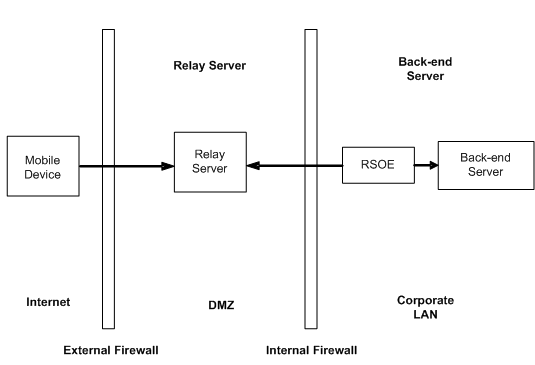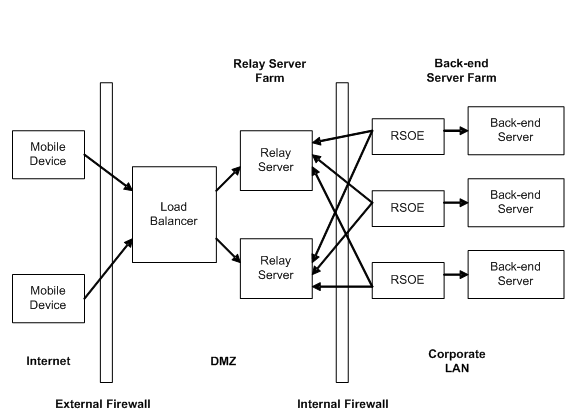A Relay Server deployment consists of the following:
The following diagram shows the Relay Server architecture with a single Relay Server.

The following diagram shows the Relay Server architecture for a more complex system with a Relay Server farm and a back-end server farm.

The Relay Server consists of a set of web extensions, a background process for maintaining state information, and a web server.
Because the Relay Server is a web extension running in a web server, all communication is performed using HTTP or HTTPS. Using HTTP easily integrates with existing corporate firewall configurations and policies. The Relay Server requires that the connection from the corporate LAN to the Relay Server be initiated from inside the corporate LAN. This provides a more secure deployment environment because it does not require inbound connections from the DMZ into the corporate LAN.
The Relay Server contains two web extensions: a client extension and a server extension. The client extension handles client requests made from applications running on mobile devices. The server extension handles requests made by the Outbound Enabler on behalf of a back-end server.
The Relay Server farm
Relay Server security
 |
Discuss this page in DocCommentXchange.
|
Copyright © 2010, iAnywhere Solutions, Inc. - SQL Anywhere 12.0.0 |